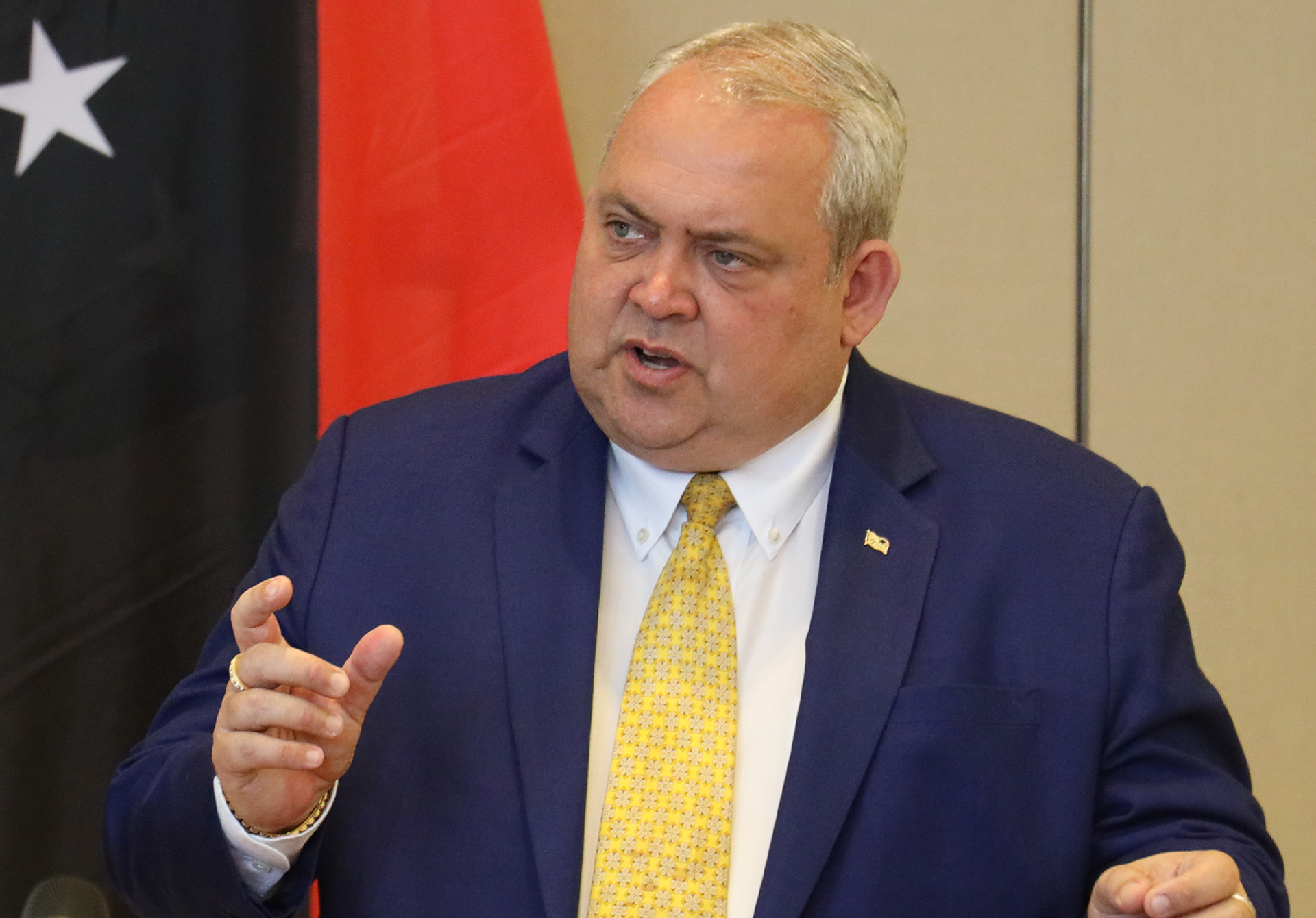Friday 27 September 2024
Success of the Pact for the Future, must be inclusive, and should not be dictated by outcomes of clubs of countries whose interests differ, from countries not party to groups, Minister Tkatchenko, tells the Group of 20 (G20) Foreign Ministers Meeting.
Foreign Minister Hon. Justin Tkatchenko in his statement to the G20 Foreign Ministers Meeting in New York, USA, urged member nations not to dictate terms of the Pact for the Future, as their interests may vary from those outside of the group.
The G20 Foreign Ministers Meeting themed; ‘Building a Just World and a Sustainable Planet’, was held in conjunction with the 79th Session of the United Nations General Assembly in New York, United States.
Minister Tkatchenko called for ‘ genuine’ address ‘through inclusive and effective multilateralism, under the United Nations’.
“We welcome the recognition of the synergy between G20 agenda and the Pact for The Future.
“The success of the Pact for the Future, should, however, be not dictated by the outcomes of exclusive clubs of countries, whose interests may differ from others who are not parties to such configurations,” Minister Tkatchenko stated.
Minister Tkatchenko added that while Papua New Guinea welcomed and strongly supported the “Call to Action on Global Governance Reform”, in the major organs of the United Nations, in the international financial architecture, and in the multilateral trading system, it was long overdue.
Minister Tkatchenko paid special tribute to Brazil for hosting the meeting at the 79th Session of United Nations General Assembly, and for Papua New Guinea’s invitation on the forum.
“It couldn’t come at a better time, when the world is being impacted by multiple crisis, and socio-economic challenges, where there is great need and importance in working together, and through multilateralism under the United Nations, for the betterment of common humanity.
“Entrenched interests of a few at the expense of the majority continue to slow the pace at which reforms are taking place in these areas.
“The realities of today demands that this cannot be allowed to continue and must be addressed, if we are to successfully deliver on the Pact for the Future,” he said.
On the UN Security Council reforms, Minister Tkatchenko said, “While we respect the intergovernmental negotiations process for it, this has been nearly twenty years and progress has been haltingly slow..”
As a result, the Security Council’s core mandate for international peace and security continues to suffer at the expense of many untold lives and livelihoods.
Minister Tkatchenko called on the Assembly to be bold and decisive to reform the UN Security Council, and not ‘merely tinker’ at the margins, but consider revising the UN Charter to account better for current day realities.
Minister Tkatchenko emphasised the need for a global financial system that prioritizes people’s lives and livelihoods above profits of a privileged few.
“Papua New Guinea, like many other small developing economies, continues to face high debt burdens that hinder investment for national development.
“While we are thankful to G20 members that continue to lend official development assistance to our country, we would urge G20 members to consider debt relief arrangements, particularly through the “Debt Service Suspension Initiative.
“Global trade needs to be inclusive and fair. We would benefit greatly from economic diversification, through improved market access and reduced trade barriers, which in turn will attract foreign direct investment.”
He highlighted Papua New Guinea’s Medium Term Development Plan which sets out its development agenda to grow the economy to K200 billion by 2030, with a greater focus on downstream processing of the country’s main economic sectors such as agriculture, fisheries, forestry, oil and gas and tourism.
“We require a level playing field to further harness the huge potential of investments provided through institutions such as the G20.”
Minister Tkatchenko added that more must be done to bridge the gap between the global North and developing South, and that the Pact for the Future provides a useful guide to progress these efforts with ease.
Minister Tkatchenko in conclusion expressed that the meeting is a good starting point for improved understanding of the development needs of others outside of the G20 that could positively impact investment, trade, infrastructure and technical and financial support needed to address each countries unique economic, social and environmental challenges.

